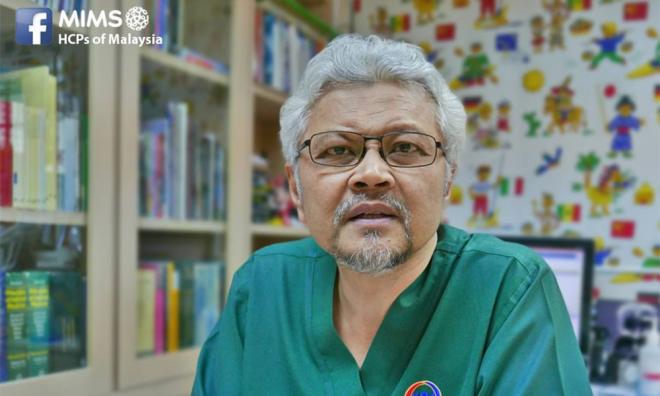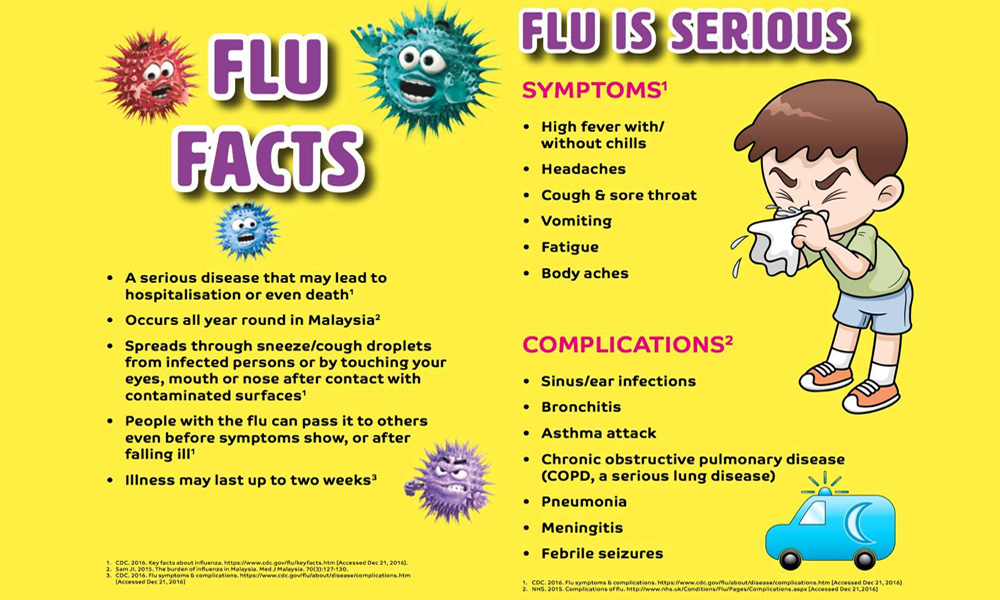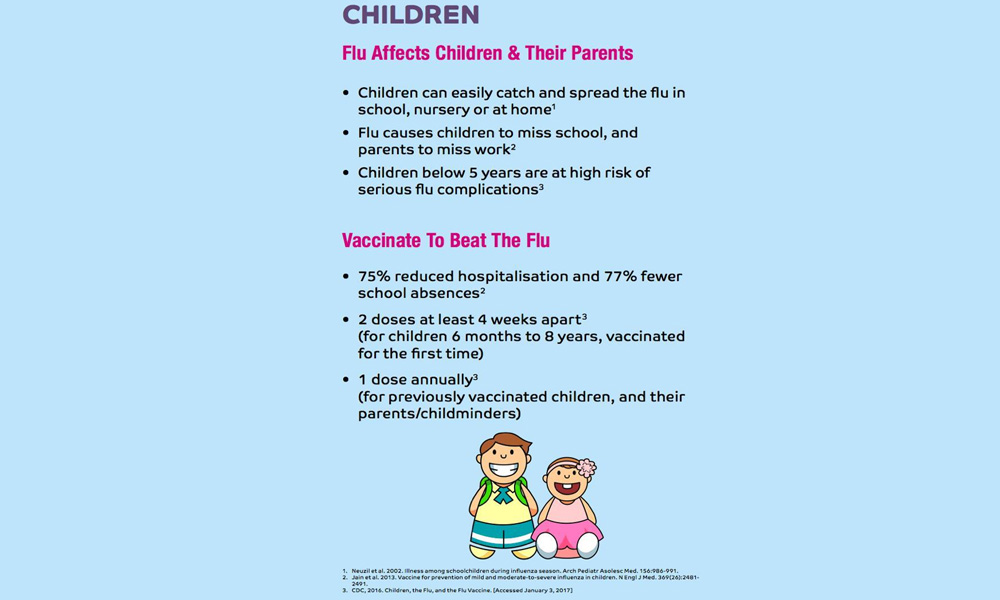
A specialist paediatrician has raised concern over a jump in influenza cases in Malaysia, with hospitals recording more than double the number of cases in 2019 compared to the year before.
Dr Musa Mohd Nordin (above), a consultant paediatrician at KPJ Damansara Specialist Hospital said the hospital’s laboratory recorded a growth of 170 percent in influenza cases in 2019 compared to 2018.
There were 2,076 cases in 2019, compared to 1,222 cases in 2018, said Dr Musa, who heads the infectious disease control at his hospital.
Data published by the World Health Organisation (WHO) also showed influenza rates of 21 percent for Malaysia in 2019, which is double that of 2018 and higher than in 2009 during the H1N1 influenza pandemic.
Data published by the World Health Organisation (WHO) also showed influenza rates of 21 percent for Malaysia in 2019, which is double that of 2018 and higher than in 2009 during the H1N1 influenza pandemic.
Dr Musa said other private hospitals are reporting similar spikes in influenza.
“Our beds are overwhelmed with flu cases which need to be isolated to prevent spread.
“I had one family of four (all positive for flu) who checked out of four hospitals before seeing me – I had to clear a four-bedded room to nurse the entire family.
“So there is a hike in the rates of flu in the country,” he told Malaysiakini.
He added the influenza spike is unrelated to the mysterious pneumonia detected in Wuhan, China. The WHO said the pathogen is not linked to influenza.
"No relations at all. Just a terribly lousy flu year - H1N1 returning with a vengeance plus B-Victoria strains. The US is experiencing similar spikes in flu," he said.
H1N1 is a strain of Influenza A while B-Victoria is a strain of Influenza B.
‘Critical shortage’
The surge has led to a “critical” shortage of Oseltamivir, the antiviral medication better known as Tamiflu which speeds up recovery for patients infected with the influenza virus.
“We are down to our last 100 boxes while others even less. Supplies are not expected until the end of January or February,” he said.
Dr Musa said he is highlighting the issue not to cause panic but to encourage influenza vaccination, especially for high-risk groups like those aged below five or above 65, pregnant women, health care providers, those with chronic diseases like asthma and diabetes as well as travellers.
High-risk groups are encouraged to vaccinate against influenza annually.
“The Ministry of Health needs to be more vigilant and maybe reconsider listing influenza again as a notifiable disease (like in 2009), that is every case or suspected case needs to be reported so we can have a better appreciation of its true prevalence,” he said.
When contacted, Health director-general Dr Noor Hisham Abdullah said a press statement will be released soon.
When contacted, Health director-general Dr Noor Hisham Abdullah said a press statement will be released soon.
Influenza vaccination is not part of the National Immunisation Programme, which covers free vaccination against 12 other diseases, administered at government clinics.
However, the Ministry of Health encourages immunisation against influenza as additional vaccination.
However, the Ministry of Health encourages immunisation against influenza as additional vaccination.
A single dose costs upwards of RM40 at private clinics and hospitals.
Influenza can be deadly
A viral infection, influenza may appear like the common cold but is more severe, affects the respiratory system and could cause death, especially among young children who have immature immune systems.
Babies below six months are also too young for influenza vaccination.
Dr Musa said Malaysia has seen a steady decrease in the number of influenza-related deaths from 77 in 2009 to three cases in 2013.
However, health professionals have recently reported a surge of severe cases of influenza causing acute necrotising encephalopathy of childhood (Anec).
There are eight cases in Selangor and Kuala Lumpur and two in Johor who are “rapidly deteriorated” and requiring assisted ventilation in the intensive care unit, he said.
Anec is a deadly disease characterised by respiratory or gastrointestinal infection and high fever, accompanied by rapid alteration of consciousness and seizures.
Dr Musa said Malaysia has seen a steady decrease in the number of influenza-related deaths from 77 in 2009 to three cases in 2013.
However, health professionals have recently reported a surge of severe cases of influenza causing acute necrotising encephalopathy of childhood (Anec).
There are eight cases in Selangor and Kuala Lumpur and two in Johor who are “rapidly deteriorated” and requiring assisted ventilation in the intensive care unit, he said.
Anec is a deadly disease characterised by respiratory or gastrointestinal infection and high fever, accompanied by rapid alteration of consciousness and seizures.
He added that there is also some panic among parents over the circulation of a digital poster cautioning against the use of non-steroidal anti-inflammatory drugs (NSAIDs) like Ibuprofen to treat influenza, claiming that it could increase the risk of encephalitis (radang otak).
“The evidence for this association (let alone causation) is scarce and such dogmatic statements will only fuel the panic among parents.
“The first therapeutic line for fever management is still paracetamol, and failing which and with the attendant risk of febrile convulsions, NSAIDs are used as second-line fever meds,” he said.


Every year 290,000 and 650,000 people worldwide die from respiratory difficulties caused by influenza, the WHO estimates. Many of those are young children.
The virus can be spread from droplets from coughs and sneezes. The influenza virus can live outside the body for hours or days.
Its symptoms include a fever of higher than 38°C, breathing difficulties, dry cough, blocked nose, sore throat, fatigue, joint pains, headache, diarrhoea, conjunctivitis, vomiting and seizures (among babies). - Mkini



No comments:
Post a Comment
Note: Only a member of this blog may post a comment.